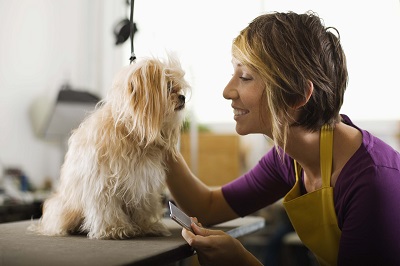Pets do pose risks in rental properties. Some renters insurance policies make allowances for pet liabilities. They might cover damages the pet could cause to the property. If your pet bites someone, policies often help you mitigate that damage as well. 
However, not all renters insurance policies fully cover your pets. In most cases, policies expect pet owners to take responsible steps that a pet poses to the home. If a pet causes one accident, your policy is likely to cover the damages. However, if accidents become frequent and costly, your renters insurance might deny your claim. The company may deem you negligent because you did not properly mitigate your risks.
- Pets need time to adjust to a new rental home. During this time, the pet may act out or cause accidents out of pure curiosity with the new space. Take the time to help your pet adjust to your new rental property. By doing so, you can reduce the pet’s liability risks.
- Before moving in, ensure that your landlord or property owner allows pets. Some property owners ban certain pets or breeds. Others charge extra rent supplements because of the additional financial risk that comes with a pet on the property. Don’t attempt to keep a pet in the home without permission and documentation in your lease.
- Check the home for potential hazards that might affect the pet. For example, broken door latches or window locks might allow pets to escape into areas that are not safe. Repair these hazards before the move.
- On moving day, see to your pet’s needs. Make sure the pet has clean water, food and a familiar toy. The pet might become confused when it sees familiar items leaving the space. Some people take their pets to a friend’s home or a pet boarder until they complete the move.
- Let your pet be the last one to arrive at the new home. Before the pet’s arrival, set up its food, water, bed, litter boxes and other familiar items. If a pet experiences familiar sights and smells when it arrives, this will help the pet adjust to the new surroundings.
- For the first few days after the move, watch your pet’s movements and habits. If the pet shows signs of stress, use calming practices to help the pet adjust. It is sometimes better not to allow strangers into the new space for a few days. Too much stimulation might scare the pet and cause it to lash out.
With the right renters insurance, you can reduce your pet liability risks. However, that doesn’t free you from your responsibility to make sure your pet doesn’t have an adverse reaction to the new environment.